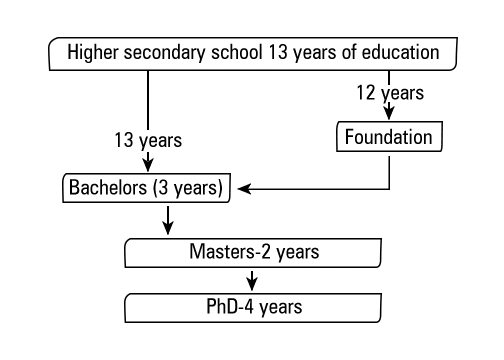Why should I study in Germany rather than someplace else? This is a question asked by many potential students. There’s a trifecta of affordability, academic quality and promise of a career in this answer.
Public Universities Make Learning Affordable – The majority of public universities in Germany either charge no tuition fees or charge very low tuition fees to their international students, making Germany an excellent, cost-effective option to study overseas.
Excellent Teaching and Research – German universities have an excellent teaching and research culture, which can be a great learning experience for you.
International Job Opportunities – German degrees are highly respected internationally and their economy is one of the world’s strongest, which would be of great advantage to students who are considering gaining work in Engineering, IT or business.
Study in Germany for International Students – What to Expect
You’ll find its system welcoming and supportive; most universities provide dedicated international offices that assist international students with applications, visas, housing needs, and overall integration into campus life.
Many master’s level programs, particularly at the master’s level, are offered entirely in English, negating the need to possess complete German fluency before arriving. That being said, learning German remains highly recommended for both daily life and long-term career development opportunities. Key highlights for international students include:
- Access student discounts for travel, entertainment, and cultural events.
- Affordable healthcare plans designed for students.
Learning experience while simultaneously supporting living costs by working part-time during studies is invaluable.
Higher Studies in Germany – Postgraduate and Research Opportunities
Research and development have a very high status in German society, making the country an excellent place for postgraduate study.
Whether you want to pursue an engineering, biotechnology, arts of medical project, German universities and researchers offer modern facilities and renowned faculty to help make your project successful. And doctoral programs generally come with funding opportunities that can help the cost of your own advanced studies seem even more doable.
It is the close relationship between industry and academia at all levels of study that differentiates German universities from others worldwide and provides a distinct competitive edge to students and alumni as they enter the workplace.
Best Courses to Study in Germany
While Germany boasts many excellent courses to study, certain fields have gained international acclaim due to their quality and career potential:
Engineering – Particularly Mechanical, Automotive, and Electrical Engineering and Technology
CS – Computer Science and IT, specifically AI, Data Science, and Cybersecurity fields, have seen exponential growth recently.
Business and Management Education – Offering International Business and MBA Programs.
Medicine and Life Sciences – Backed by advanced research facilities
At its heart lies an approachable learning program tailored to both your professional and personal objectives.
Dual Study Programs in Germany – Learn and Earn
One unique component of Germany’s education system is dual study programs. These combine academic learning with job training at partner companies; students divide their time between classes and workplace training to gain hands-on experience while earning an income.
Dual study programs have become an increasingly popular approach in fields like engineering, business administration, and IT for international students. Dual studies can serve as an easy gateway into employment after graduation for international students through direct job market exposure provided through dual study programs – often providing direct entry-way jobs after graduating!
Student Stories on A Day in the Life – Student Biographies
Imagine yourself living in Berlin in an inviting apartment and cycling to your morning lecture on renewable energy before meeting friends from all around the globe for lunch at an international cafe. Following class, perhaps your part-time internship at an established tech company allows you to apply the skills learned that morning!
On evenings and weekends, you join a language exchange group to hone your German. At nightfall, enjoy music festivals or museum nights to round out an academically rigorous yet culturally immersive and self-enriching day in Germany! These interactions make studying there such an enriching experience!
Epilogue
With free education, prestigious universities, and exclusive opportunities for cultural and social activities, as well as for job training, Germany is the perfect place for you to pursue your studies!
No matter where life may lead you – be it studying higher studies in Germany, enrolling in one of its esteemed study courses, or joining an innovative dual study program – your experience here will bring with it an unrivaled history of academic excellence that opens doors around the globe.
Now is the time to take that initial step toward realizing your dream: research programs and applications, and prepare yourself for an unforgettable academic adventure abroad in Germany; sooner rather than later, your opportunity might appea


